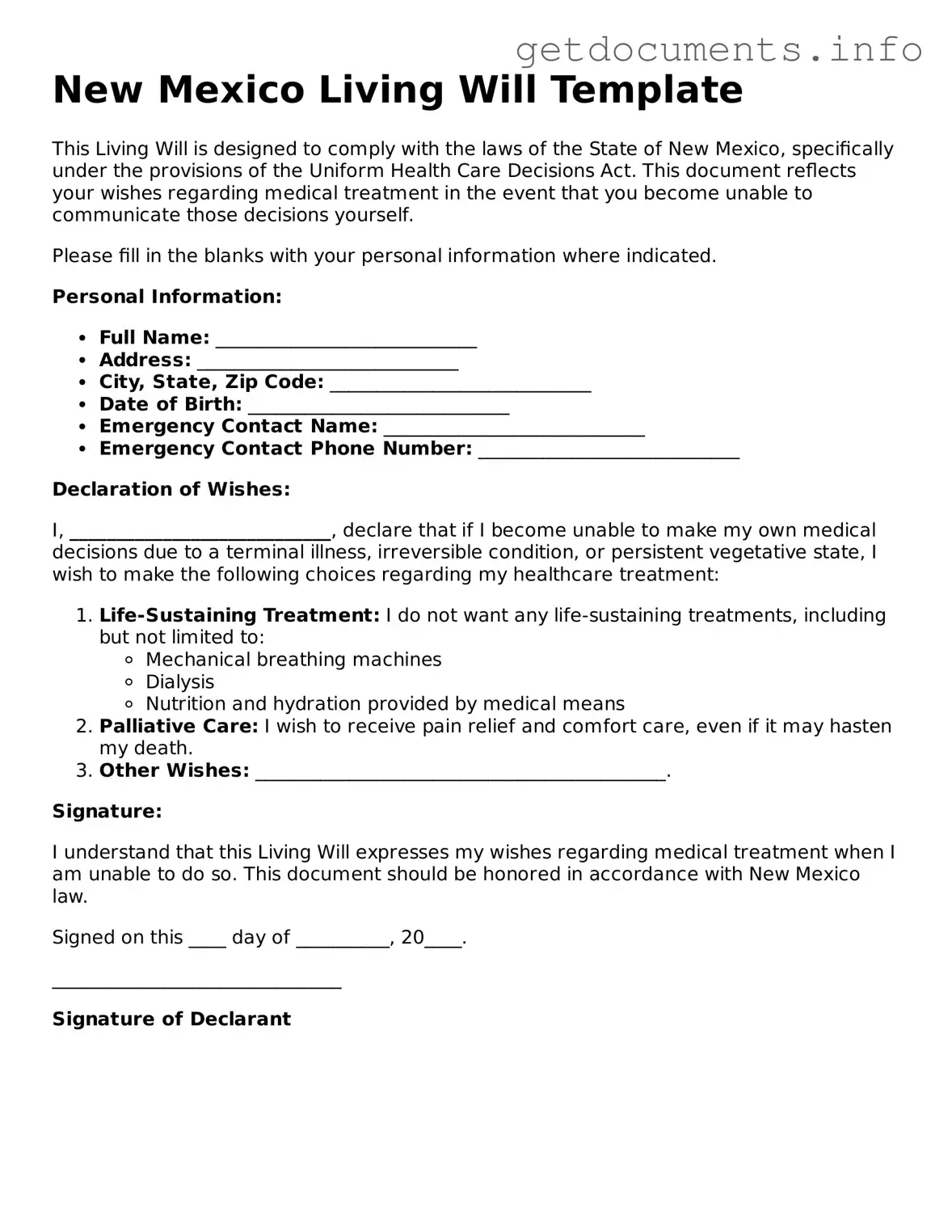Free Living Will Template for New Mexico
A New Mexico Living Will form is a legal document that allows individuals to express their wishes regarding medical treatment in the event they become unable to communicate. This form ensures that healthcare providers and family members understand a person's preferences for end-of-life care. To take control of your healthcare decisions, consider filling out the form by clicking the button below.
Access Living Will Editor

Free Living Will Template for New Mexico
Access Living Will Editor
Got places to be? Complete the form fast
Fill out Living Will online and avoid printing or scanning.
Access Living Will Editor
or
⇩ PDF File
